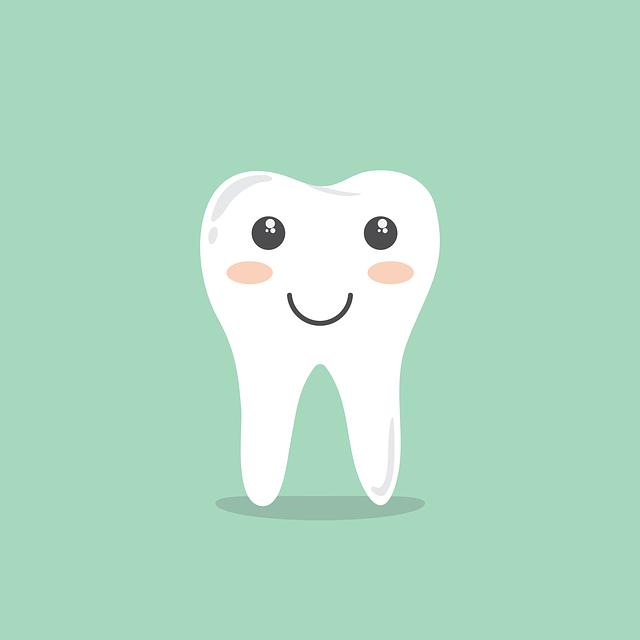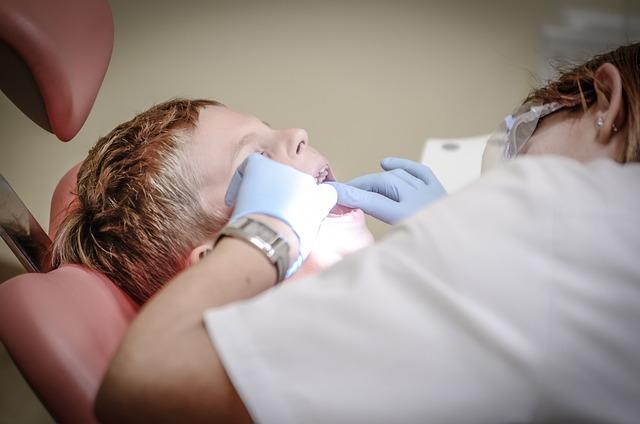How Does Salt Water Help Teeth: Explained
Have you ever wondered why dentists often recommend saltwater rinses for oral health? It seems counterintuitive, right? After all, we’ve always been told that salt is bad for our teeth. But what if I told you that saltwater can actually be beneficial for your dental hygiene? In this article, we will delve into the fascinating science behind how saltwater helps teeth. Prepare to be amazed as we uncover the secrets of this age-old remedy and explore its numerous dental benefits. Get ready to take a deep dive into the realm of saltwater and discover why it’s worth incorporating into your oral care routine.
1. Understanding the Benefits: How Salt Water Can Improve Oral Health
Salt water has long been known for its numerous benefits in improving oral health. Incorporating salt water into your oral hygiene routine can provide a range of advantages that can help maintain a healthy mouth. Here are some key benefits to consider:
1. Reduces inflammation: Salt water has natural anti-inflammatory properties, making it an effective remedy for reducing inflammation in the gums. It can help alleviate the discomfort associated with gum disease, gingivitis, and other oral infections.
2. Fights bacteria: Salt water acts as a natural disinfectant, killing harmful bacteria that can lead to tooth decay and bad breath. Gargling with salt water can effectively cleanse the mouth and eliminate bacteria hiding in hard-to-reach areas.
3. Promotes healing: Salt water can aid in the healing process of oral wounds, such as canker sores, mouth ulcers, and post-surgical areas. Its antiseptic properties help to cleanse the affected area and promote faster healing.
To reap the benefits of salt water for your oral health, simply mix half a teaspoon of salt in a glass of warm water until it dissolves. Gargle with the solution for about 30 seconds, making sure to swish it around your mouth and between your teeth. Spit it out and repeat this process a few times a day or as recommended by your dentist. Remember not to swallow the salt water, as it may cause dehydration or other adverse effects.

2. The Power of Nature: Exploring the Science Behind Salt Water’s Effect on Teeth
When it comes to the power of nature, one natural phenomenon that has intrigued scientists for years is the effect of salt water on teeth. Salt water, also known as saline solution, is a mixture of salt and water that has been used for various purposes, including dental hygiene. But what exactly is the science behind its impact on our teeth?
Firstly, salt water has natural antibacterial properties, thanks to the presence of salt. This means that when we rinse our mouths with salt water, it helps to kill the bacteria that can lead to tooth decay and gum disease. It acts as a natural mouthwash, reducing the number of harmful bacteria in our mouths.
Secondly, salt water also has a soothing effect on the gums and oral tissues. It can help to alleviate inflammation and promote healing, making it an effective remedy for mouth ulcers and other oral irritations. The saline solution acts as a gentle antiseptic, creating an environment that is hostile to bacteria while promoting the healing process.
- Saline solution can be easily made at home by dissolving salt in warm water. It is a cost-effective and natural alternative to commercial mouthwashes.
- Rinsing with salt water should be done after brushing and flossing, preferably twice a day or as recommended by your dentist.
- It is important to note that while salt water can be beneficial for oral health, it should not replace regular dental care, including brushing, flossing, and professional cleanings.
Next time you’re looking for a natural remedy to promote oral health, consider harnessing the power of nature with salt water. Its antibacterial properties and soothing effects make it a simple but effective addition to your dental hygiene routine.

3. A Natural Remedy: How Salt Water Can Help Maintain Strong and Healthy Teeth
Salt water is a simple yet effective natural remedy for maintaining strong and healthy teeth. It is readily available, affordable, and easy to use. Incorporating salt water into your oral hygiene routine can provide numerous benefits for your dental health. Here are some key reasons why salt water is a valuable addition to your dental care regimen:
1. Antibacterial properties: Salt water has natural antibacterial properties that can help eliminate harmful bacteria in the mouth. Rinsing with salt water can reduce the risk of developing gum disease and tooth decay by killing bacteria that may lead to these oral health issues.
2. Soothes gum inflammation: If you experience gum inflammation or soreness, rinsing with salt water can provide relief. The salt water acts as a gentle antiseptic, reducing inflammation and soothing any discomfort or pain in the gums.
3. Promotes healing: Salt water can aid in the healing process of minor oral wounds, such as mouth ulcers or canker sores. It helps to cleanse the area and create a healthier environment for the healing process to take place.
To incorporate salt water into your oral care routine, simply dissolve half a teaspoon of salt in a cup of warm water. Swish the solution around your mouth for about 30 seconds, making sure to reach all areas, and then spit it out. Repeat this process once or twice a day, preferably after brushing your teeth. Remember to always use a saltwater rinse as a supplement to regular brushing and flossing, not as a substitute.
4. Harnessing the Minerals: Unveiling the Role of Salt Water in Dental Care
As we delve into the world of dental care, it’s important to explore the potential benefits of salt water. Salt water, also known as saline solution, has been used for centuries as a natural remedy for various ailments. In recent years, its role in dental care has gained attention due to its numerous advantages.
1. Natural Mouthwash: Salt water can be used as a natural mouthwash to cleanse the mouth and eliminate bacteria. Its antimicrobial properties help to reduce plaque buildup and prevent gum disease.
2. Soothing Agent: Salt water can provide relief from oral discomfort and inflammation. Rinsing with salt water can help to soothe sore gums, canker sores, and other oral irritations.
3. Healing Aid: Salt water promotes the healing process of oral wounds and accelerates tissue regeneration. It can be particularly beneficial after dental procedures such as tooth extractions or oral surgeries.
By harnessing the minerals present in salt water, we can unlock a myriad of benefits for dental care. Incorporating salt water as part of your oral hygiene routine can contribute to a healthier mouth and overall well-being.
5. The Healing Properties: Unraveling How Salt Water Promotes Gum Health
When it comes to maintaining oral hygiene, most people are familiar with the importance of brushing and flossing. However, an often overlooked but effective method for promoting gum health is salt water rinses. Salt water has been used for centuries as a natural remedy for various ailments, and its healing properties extend to gum health as well.
So, how exactly does salt water promote gum health? Here are a few key reasons:
- Reduces inflammation: Salt water acts as a natural anti-inflammatory agent, reducing swelling and redness in the gums. This can provide relief from gum sensitivity and tenderness caused by gum disease or other oral conditions.
- Kills bacteria: Salt water has antimicrobial properties that help eliminate harmful bacteria in the mouth. It can effectively reduce the bacterial load on the gums and prevent the progression of gum disease.
- Accelerates healing: Salt water can aid in the healing process by promoting blood circulation and increasing oxygen supply to the gums. This helps speed up the recovery of damaged tissues and promotes overall gum health.
To make a salt water rinse, simply dissolve half a teaspoon of salt in a cup of warm water. Swish the solution around your mouth for about 30 seconds and then spit it out. It is important to note that salt water rinses should not replace regular brushing and flossing, but rather be used as a complementary practice to maintain optimal gum health.
6. Tapping into the Saltwater Solution: An In-depth Look at its Antibacterial Properties
When it comes to antibacterial properties, saltwater has long been hailed as a natural solution. Its unique composition and minerals make it a powerful contender in fighting against harmful bacteria. Let’s dive deep into the science behind saltwater’s antibacterial properties and explore how it can be tapped into for various uses.
The Composition:
- Saltwater is primarily composed of sodium chloride (NaCl), which acts as a natural disinfectant.
- It also contains other minerals like magnesium, calcium, and potassium, which enhance its antibacterial properties.
How it Works:
- The high salt concentration in saltwater creates a hypertonic environment, causing bacteria to lose water through osmosis.
- As a result, bacteria are dehydrated and unable to survive.
- Additionally, saltwater disrupts the cell walls of bacteria, further inhibiting their growth and reproduction.
Applications:
- Oral hygiene: Saltwater rinses can help alleviate gum infections, reduce inflammation, and promote oral health.
- Wound healing: Saltwater can be used as a natural antiseptic for cleaning wounds, preventing infection, and promoting healing.
- Skin conditions: Saltwater baths have been found to have a positive impact on various skin conditions, such as acne, eczema, and psoriasis.
With its remarkable antibacterial properties, saltwater proves to be a versatile and accessible natural solution for promoting health and hygiene. From oral care to wound healing, harnessing the power of saltwater can provide effective and safe alternatives in our daily lives.
7. Salt Water Rinse: A Simple Yet Effective Technique for Oral Hygiene
Using a salt water rinse is a simple and effective technique for maintaining good oral hygiene. This natural remedy has been used for centuries and can provide numerous benefits for your teeth and gums. Here’s why you should consider incorporating a salt water rinse into your daily oral care routine:
- Reduces inflammation: Salt has anti-inflammatory properties that can help reduce swelling and irritation in the gums. This can be especially beneficial for individuals who suffer from gum disease or have sensitive gums.
- Kills bacteria: Salt water has antimicrobial properties that can help kill bacteria and prevent the growth of harmful microorganisms in your mouth. This can help to reduce bad breath and lower the risk of developing dental infections.
- Speeds up healing: If you have recently undergone oral surgery or have a mouth sore, rinsing with salt water can promote faster healing. The salt helps to cleanse the area and create an environment that is less favorable for the growth of bacteria.
To create a salt water rinse, simply dissolve half a teaspoon of salt in a cup of warm water. Swish the solution around your mouth for about 30 seconds, making sure to reach all areas. Spit it out and repeat the process once or twice a day, or as directed by your dentist.
8. The Art of Salt Water Mouthwash: Step-by-Step Guide to Improve Dental Well-being
Using salt water mouthwash is a simple and effective way to improve your dental well-being. Here is a step-by-step guide to help you master the art of salt water mouthwash:
- Gather your ingredients: To make salt water mouthwash, you will need 1/2 teaspoon of salt and 8 ounces of warm water. Make sure to use non-iodized salt, as iodine can irritate the gums.
- Mix the solution: Pour the warm water into a cup and add the salt. Stir well until the salt is completely dissolved.
- Swish and rinse: Take a mouthful of the salt water solution and swish it around in your mouth for 30 seconds to one minute. Be sure to cover all areas, including the front and back of your teeth and gums. Spit out the solution after rinsing.
- Repeat twice daily: For maximum benefits, it’s recommended to use salt water mouthwash twice a day, preferably after brushing your teeth. This routine will help kill bacteria, reduce inflammation, and promote healthy gums.
- Follow with regular oral hygiene: Salt water mouthwash is a great addition to your oral care routine, but it should not replace brushing and flossing. Remember to continue brushing your teeth at least twice a day and flossing daily for optimal dental health.
By following these simple steps, you can harness the power of salt water mouthwash to improve your dental well-being. Give it a try and enjoy the benefits of a healthier mouth!
9. A Gentle, Natural Approach: Salt Water’s Contribution to Tooth Sensitivity Relief
Salt water can provide a gentle and natural approach to alleviate tooth sensitivity. This simple yet effective remedy has been used for centuries to provide relief from various dental issues. Here are some ways in which salt water can contribute to soothing tooth sensitivity:
1. Reduces inflammation: Salt water has natural anti-inflammatory properties that can help reduce inflammation in the gums and tooth roots. It can alleviate the discomfort associated with sensitive teeth by soothing the affected area.
2. Promotes healing: Salt water can promote the healing process by creating an environment that is unfavorable for bacterial growth. It can help prevent further damage to the tooth enamel and gums, allowing them to heal naturally.
3. Cleanses the mouth: Salt water acts as a natural mouthwash, effectively cleansing the mouth and removing harmful bacteria. It can help maintain oral hygiene and prevent the buildup of plaque, which is a common cause of tooth sensitivity.
To use salt water for tooth sensitivity relief, simply mix half a teaspoon of salt in a glass of warm water. Gargle with this solution for about 30 seconds, making sure to swish it around the affected areas. Spit out the salt water and rinse your mouth with plain water. Repeat this process a few times a day or as needed. Remember to consult your dentist if the tooth sensitivity persists or worsens.
10. Beyond the Ocean: Exploring the Use of Salt Water for Overall Dental Wellness
When it comes to dental wellness, exploring alternative methods can often lead to surprising discoveries. One such method that has gained attention is the use of salt water. This natural remedy, known for its antibacterial and anti-inflammatory properties, has been found to be beneficial for overall oral health.
Here are some reasons why incorporating salt water into your dental routine can be beneficial:
- Reduces inflammation: Gargling with salt water can help reduce inflammation in the gums and alleviate discomfort caused by gum disease or mouth sores.
- Kills bacteria: Salt water has antimicrobial properties that can help kill harmful bacteria in the mouth, reducing the risk of tooth decay and gum infections.
- Relieves pain: Rinsing your mouth with salt water can provide temporary relief from toothaches and sore throats.
- Speeds up healing: Salt water can promote faster healing of wounds, such as after oral surgery or tooth extraction.
While salt water can be a valuable addition to your oral hygiene routine, it is important to note that it should not replace regular brushing, flossing, and professional dental care. It is always recommended to consult with your dentist before incorporating any new practices into your dental routine.
Frequently Asked Questions
Q: How does salt water help teeth?
A: Salt water has several benefits for oral health. When used as a mouth rinse, it can help alleviate gum inflammation, reduce bacteria and plaque buildup, and promote healing of oral wounds.
Q: What makes salt water effective in reducing gum inflammation?
A: Salt water’s anti-inflammatory properties help soothe swollen and irritated gums. It works by reducing the swelling, redness, and discomfort associated with gum inflammation, providing relief and promoting healthier gum tissues.
Q: Can salt water effectively reduce bacteria in the mouth?
A: Yes, salt water has antimicrobial properties that make it effective in reducing bacteria in the mouth. Rinsing with salt water can help eliminate harmful bacteria, preventing dental issues such as tooth decay, gum disease, and bad breath.
Q: How does salt water contribute to plaque reduction?
A: Salt water has an astringent effect, which means it helps remove plaque from the teeth. It works by loosening and dislodging plaque, making it easier to brush away. Regular use of salt water rinses can aid in plaque reduction and improve overall oral hygiene.
Q: Can salt water promote the healing of oral wounds?
A: Yes, salt water has mild antiseptic properties that can aid in the healing process of oral wounds. It can help clean and disinfect the affected area, reducing the risk of infection and accelerating healing.
Q: Is salt water a safe and natural option for oral care?
A: Absolutely. Salt water is a safe and natural remedy for oral care that has been used for centuries. It is generally well-tolerated and does not contain any harsh chemicals or additives, making it a gentle and effective option for maintaining oral health.
Q: How should one use salt water for oral care?
A: To use salt water for oral care, mix half a teaspoon of salt in a glass of warm water. Stir until the salt is dissolved. Take a small sip, swish the solution around your mouth for about 30 seconds, and then spit it out. Repeat this process a few times daily or as recommended by your dentist.
Q: Are there any precautions to consider when using salt water for oral care?
A: While salt water is generally safe, it is important not to swallow it. Swallowing large amounts of salt water can lead to dehydration or electrolyte imbalances. Additionally, if you have any existing medical conditions or are on specific medications, it is advisable to consult with your dentist or healthcare provider before using salt water for oral care.
Q: Can salt water be used as a substitute for regular dental visits and oral hygiene practices?
A: Salt water should not be used as a substitute for regular dental visits or proper oral hygiene practices. While it can be a beneficial addition to your oral care routine, it is important to continue brushing your teeth twice a day, flossing, and visiting your dentist for professional cleanings and check-ups.
Key Takeaways
In conclusion, the benefits of salt water for dental health cannot be understated. By harnessing the natural antibacterial and anti-inflammatory properties of salt, we unlock a simple yet effective way to promote oral hygiene. Regular salt water rinses can help reduce plaque buildup, fight gum disease, and alleviate tooth sensitivity. It is important to remember, however, that salt water should never replace regular brushing and flossing, but rather complement these essential practices. So, next time you’re looking for a natural and cost-effective way to maintain a healthy smile, consider incorporating salt water rinses into your oral care routine. Your teeth will thank you!





